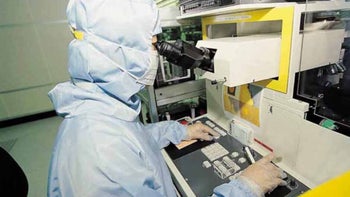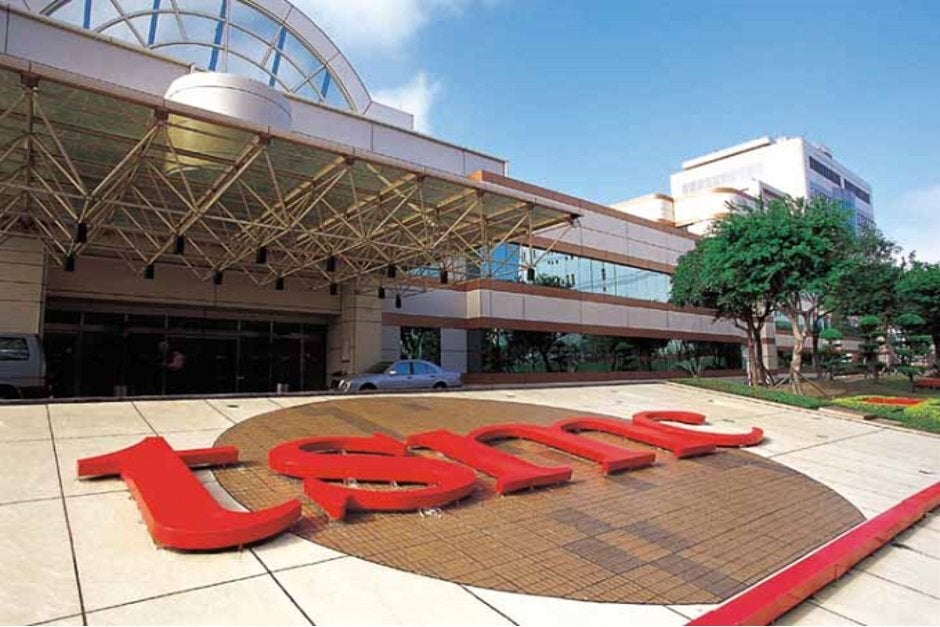Major component for 5G Apple iPhone 12 series will soon be rolling off the assembly line

According to Digitimes, later this month the world's largest independent foundry, TSMC, will start production of the A14 Bionic chipset for the 5G 2020 Apple iPhone 12 models. Assuming that Apple ships its new handsets during its traditional time period, there is a very good chance that the iPhone 12 line will be the first smartphones powered by a 5nm chip. The A14 Bionic chipset will be more powerful and energy-efficient than the current A13 Bionic used to power the iPhone 11 series and the iPhone SE (2020).
- iPhone 13 release date, price, features, and specs
Samsung Galaxy Note 20 series could be the first smartphones to break the 7nm barrier
The process node is based on the transistor density or the number of transistors that fit in a square mm. For example, the currently employed 7nm A13 Bionic can pack approximately 96.5 million transistors into a square mm compared to the 171.3 million that can fit into a square mm using the 5nm process. As a result, the 8.5 billion transistors inside each A13 Bionic soars to 15 billion transistors inside each A14 Bionic chipset.

TSMC will manufacture 5nm chips for Apple and Huawei this year
TSMC is also expected to ship the 5nm HiSilicon Kirin 1020 SoC to Huawei for the latter's flagship Mate 40 family later this year. But Huawei might have problems obtaining cutting-edge chips starting with next year's P50 camera-centric models. That's because of an export rule change announced by the U.S.; no foundry using American-made technology can ship semiconductors to Huawei without a license from the U.S. Commerce Department. However, chips made from wafers that were under production when the rule change was announced can be shipped to Huawei as long as they are delivered by the middle of September. That could allow Huawei to have enough chips for the Mate 40 phones.
TSMC and Samsung are the only contract foundries with the capabilities of manufacturing chips using the 5nm process node. However, since both use U.S. equipment to make these chips, Huawei might have to scramble to find a replacement. Reportedly, Samsung is talking with Huawei about producing a line of 7nm integrated circuits made without using any American tech. It would be a step backward for Huawei and could damage the company's flagship business.
Interestingly, the Samsung Galaxy Note 20 and Galaxy Note 20 Ultra could be the first phones to break the 7nm barrier. That's because in some markets Sammy's 2020 second-half flagship series is rumored to be powered by the unannounced Exynos 992 chipset which reportedly will be manufactured using Samsung's 6nm process node. At least in the U.S., the phones will be powered by the 7nm Qualcomm Snapdragon 865 SoC.
Besides Apple's customized A14 Bionic SoC, the four iPhone 12 models will each have a Snapdragon X60 5G modem according to industry sources. The modem supports both sub-6GHz and mmWave 5G signals; yet the latest rumors call for sub-6GHz support for the iPhone 12 and iPhone 12 Plus and support for the faster mmWave signals on the iPhone 12 Pro units. However, if both the standard and Pro models use the same 5G modem chip as the Digitimes report suggests, we could see all four variants of the iPhone 12 line run on both 5G signals.
TSMC is planning on building a fabrication facility in Arizona according to media reports back in May. This factory won't really help Apple for a couple of reasons. One, Apple's handsets are assembled in China (with a small number made in India) so a TSMC foundry located in the states does nothing to lower Apple's costs. And secondly, the fabrication facility in Arizona wouldn't come online until 2023. By then, the 5nm chips that it is expected to produce will be replaced by 3nm chips with 300 million transistors packed into every square mm. Thus far, TSMC has not made any official announcement about building a factory on U.S. soil.













Things that are NOT allowed: